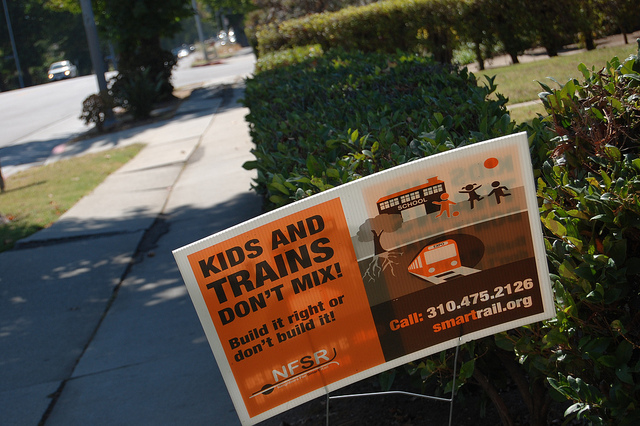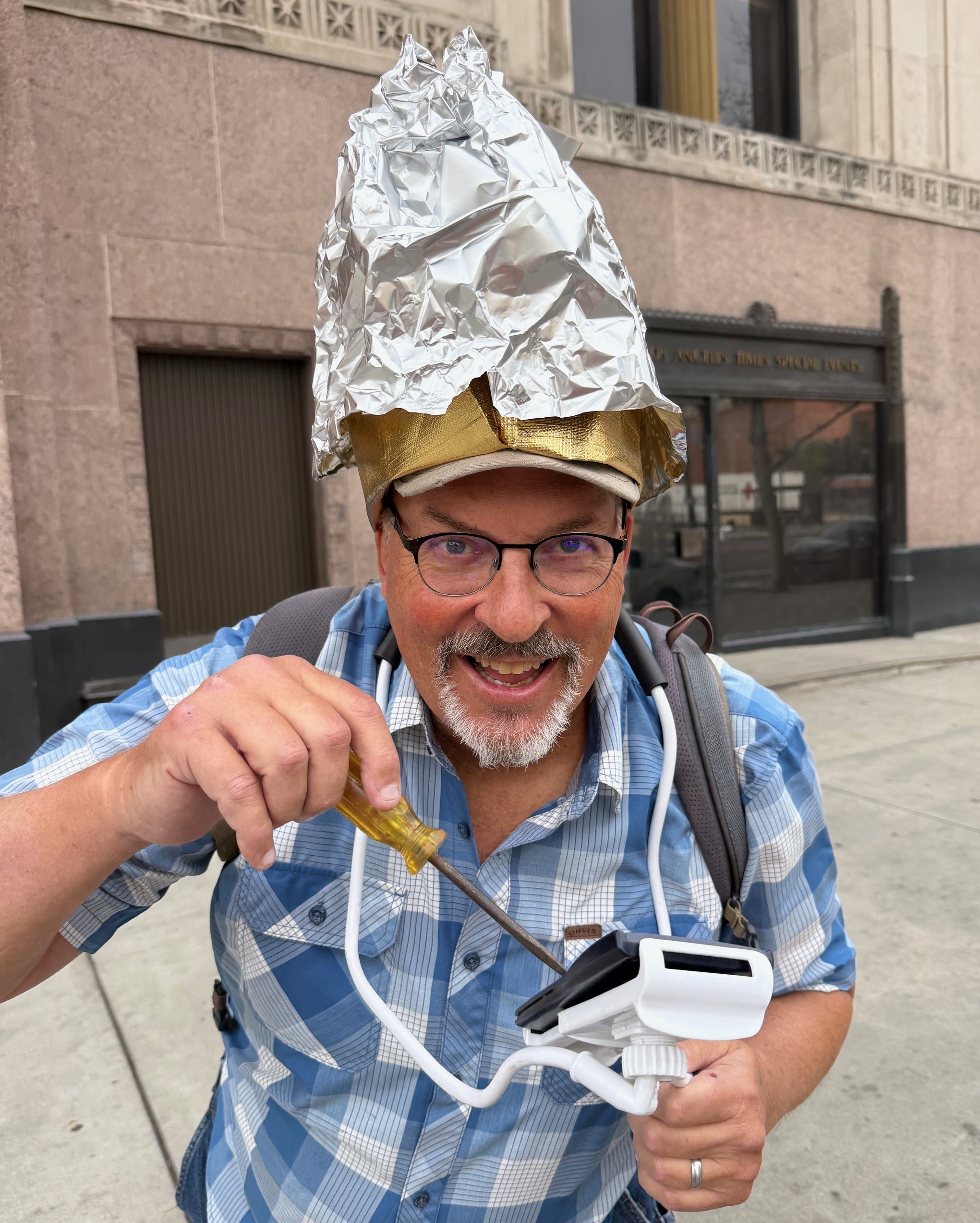
The question of how far Neighbors for Smart Rail, a coalition of homeowners and community groups fighting the expansion of the Expo Line into West Los Angeles, were willing to take their legal challenges to the line is now answered. They're willing to take it all the way.
Last week, NFSR appealed to the California Supreme Court to overturn a decision of the 2nd Appellate Division of the California Superior Courts to uphold the environmental documents supporting the construction of Phase II of the Expo Line. Phase II of the Expo Line will pick up where Phase I ends in Culver City and extend the line to Downtown Santa Monica. The Supreme Court has not announced whether it will hear arguments or issue a ruling in the case.
While NFSR has many complaints with the Expo Line and how the line was approved; court watchers are pointing to one specific complaint that has likely caught the Supreme Court's attention: "The Baseline Issue." NFSR has argued in two court rooms that the Expo Authority used an improper baseline for analyzing the impacts of the Expo Line on automobile traffic, air quality and greenhouse gas emissions. The Expo Construction Authority evaluated the impacts on conditions it projected to exist in 2030. NFSR argues that instead of future conditions the Authority needed to look at current conditions as its baseline, not ones from an uncertain future.
NFSR's legal team points to two cases Madera Oversight Coalition, Inc. v. County of Madera (5th District Court of Appeals, 2011) and Sunnyvale West Neighborhood Assn. v. City of Sunnyvale City Council (6th District Court of Appeals, 2010) where state appellate courts ruled that agencies cannot use future conditions as a baseline when evaluating the environmental impacts of proposed projects.
The Second Appellate Court didn't just reject the argument affirmed by the other courts, it emphatically rejected it.
So it's not a surprise that the Supreme Court could step in. While there are clear differences between Sunnyvale, Madera and the current case; it makes sense for the top court in California to make a definitive statement on what can, and what can't, be used as a baseline in state mandated environmental studies.
Regardless of the outcome of this case, we're likely at the end of the road, legally speaking, for the challenges to the Expo Line. Unless of course the court merely requires that the Authority re-do the environmental studies with a new baseline. If it stops construction while it waits for the new study, such a ruling could add years to the opening date of Phase II. If it orders a new study but doesn't stay construction, then all of these legal challenges could end up resulting in new studies and more chances to have more legal challenges.
(Note: The Expo Construction Authority does not comment on active lawsuits. NFSR representatives were asked to comment for this story but did not respond by publication time.)
(Note 2: An earlier version of this story implied that the Supreme Court had already decided to take up the case. That is not true and the story has been altered slightly to reflect that. Thanks, Jonathan.)






